Ex-Harvard professor Charles Lieber convicted of lying about China ties
Eugene Yu was an “officer” on the “finance committee” of the American Zhu Kezhen Education Foundation, which awarded Dr. Charles Lieber an all-expenses paid trip to Zhejiang University in 2002.
On January 28, 2020, U.S. federal authorities arrested Charles Lieber of Harvard University on charges of misleading the Department of Defense and the National Institutes of Health about his connections to China’s Thousand Talents Plan.
Thousand Talents is the most prominent of more than 200 similar initiatives China uses as part of its overseas program to acquire foreign technology and intellectual property.
According to the DOJ, the Wuhan University of Technology (WUT) “paid Lieber $50,000 per month, living expenses of up to $158,000 at a time, and awarded him more than $1.5 million to establish a research lab at WUT.”
Dr. Lieber, the chair of the Department of Chemistry and Chemical Biology at Harvard University, failed to disclose his role as a ‘Strategic Scientist’ at Wuhan University of Technology (WUT) and his participation in the Thousand Talents Plan.
Eugene Yu, the CEO of U.S. election software company Konnech, was an “officer” on the “finance committee” of the American Zhu Kezhen Education Foundation (AZKEF).
In 2002, AZKEF awarded Dr. Lieber the “International Zhu Kezhen Lectureship Award,” which included an all-expenses paid trip to Zhejiang University, where the head of Harvard’s Chemistry Department gave a speech on “Nanotech in Today’s World.”
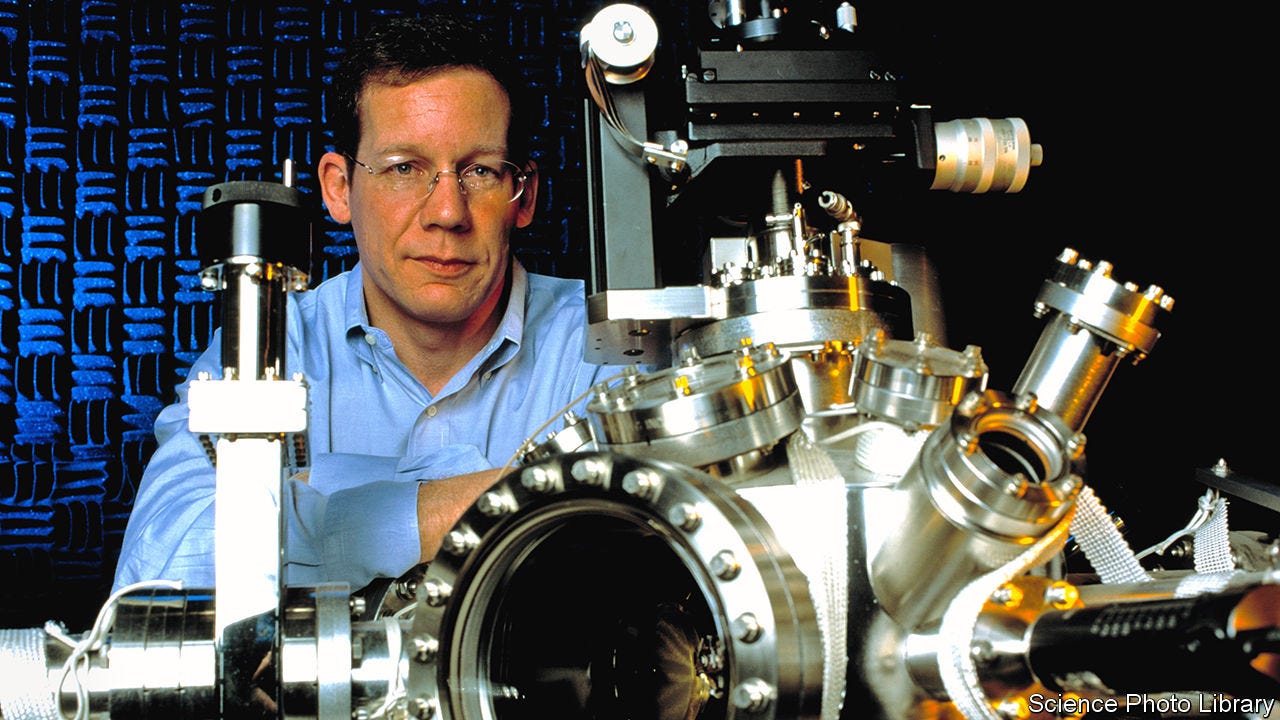
AZKEF Sends Charles Lieber To China
Konnech CEO Eugene Yu was featured in a Chinese magazine entitled "Overseas Scholars" written by AZKEF and the China Association for Science and Technology in the United States (CAST-USA).
In the magazine, CAST-USA refers to Eugene Yu by his Chinese name Yu Jianwei (于建伟), and says that he is an “officer” on the “finance committee” of the American Zhu Kezhen Education Foundation.
I discovered Dr. Lieber’s visit to Zhejiang University in the archives of AZKEF’s website.

AZKEF’s mission is “to promote exchange and cooperation between Zhejiang University and universities in the United States” and “to invite United States professors or scientists to Zhejiang University.”
According to AZKEF, Dr. Lieber’s visit “produced a lot of excitement” and other universities such as “Fudan University, University of Science and Technology of China, Tshinghua University, and the Chinese Academy of Sciences” took the opportunity to invite Lieber to visit their campuses:
The 2002 lecturer, Prof. Charles Lieber, the Mark Hyman Professor of Chemistry of Harvard University is a recognized foremost scientist in nano science and technology, an emerging field of intense worldwide interest. The announcement of his visit to ZU instantly produced a lot of excitement in scientific circles in China. Fudan University, University of Science and Technology of China, Tshinghua University, and the Chinese Academy of Sciences took this advantage to invite Prof. Lieber to also visit their campuses.
Prof. Lieber’s lectures at ZU attracted a large audience. He received an honorary professorship from ZU and provided valuable feedback to ZU’s Center for Nano Science and Technology after hearing presentations by five ZU professors in this area. Prof. Lieber truly found this trip interesting and enjoyable, and stated that it was the best trip he has taken in many, many years.
At a Senate Judiciary Committee hearing, Bill Priestap, the former Assistant Director of the FBI’s Counterintelligence Division, stated that China’s talent recruitment plans are effectively “brain gain programs” that “encourage theft of intellectual property from U.S. institutions.”
Priestap continued, “For example, China’s talent recruitment plans, such as the Thousand Talents Program, offer competitive salaries, state-of-the-art research facilities, and honorific titles, luring both Chinese overseas talent and foreign experts alike to bring their knowledge and experience to China, even if that means stealing proprietary information or violating export controls to do so.”

AZKEF’s letter above translated into English:
On November 4th, Charles Lieber, a famous American scientist and Professor of Mark Hyman Jr. of Harvard University, was invited to visit our school. Professor Lieber is an internationally renowned scientist invited by the Zhu Kezhen Educational Foundation of the United States and Zhejiang University. His visit signifies that Zhejiang University has taken the highest international level of scientific research as its forge ahead goal, and it also marks that Zhejiang University has stepped up to a higher level in international exchanges. Professor Lieber received his Ph.D. from Stanford University in 1986.
Now he is a director of the American Society for Advanced Science, a director of the American Physical Society, and a director of the American Chemical Society. He is also on the editorial board of various international authoritative academic journals, such as Applied Physics Letters, Journal of Applied Physics, Journal of Physical Chemistry, etc. His research areas cover the physics and chemistry of low- and nano-sized matter, fundamental research on electronic, photonic and optoelectronic properties of nanomaterials, and research and development of nanoelectronics and nanophotonic systems.
In his research field, he has published more than 400 high-level papers, of which more than ten were published in the most advanced international scientific and technological journals <Nature> and <Science>. At 9:00 a.m. on November 5th, the venue of the Mathematical Science Research Center of Zhejiang University was full of more than 200 people. They were professors, graduate students and undergraduates from various campuses. They made a special trip to listen to Professor Lieber's speech. The lecture was held by the Nanotechnology Center of Zhejiang University and the Department of Foreign Exchange and Cooperation.
Vice President Ni Mingjiang, on behalf of Zhejiang University, awarded Charles Lieber the title of Honorary Professor of Zhejiang University and delivered a warm speech. In the speech, he spoke highly of Professor Lieber's brilliant achievements in the field of nanotechnology, and regarded Professor Lieber's visit as a precious opportunity to develop the friendship between Zhejiang University and Harvard University. He hoped that Professor Lieber's visit could establish a bond between Zhejiang University and Harvard University, and push the teaching and research of Zhejiang University to a higher level.
Prof. Lieber happily accepted the title of honorary professor of Zhejiang University and gave two wonderful speeches in the morning and afternoon. The content involves a large number of achievements in basic research and high-tech development by the research group he led in recent years, including several research papers on quasi-one-dimensional nanomaterials published in the most advanced international scientific journals <Nature> and <Science> ; Several designs and patents in the fields of nanoelectronic devices, mesoscopic circuits, and quantum computers.
A large number of scientific and technological pictures and photos displayed by Powerpoint, and Professor Lieber's vivid and interesting descriptions made the audience feel like they had wandered through the peak of science. In order to carry out in-depth exchanges with Professor Lieber, five professors in our school who are engaged in nanomaterials research also invited Professor Lieber to participate in their lectures on the morning of the 6th. The professors showed Professor Lieber the research status of Zhejiang University in the field of nanomaterials, including talent structure, equipment level, research results, etc.
Prof. Lieber spoke highly of their work and made many instructive suggestions. He believes that our work has indeed stepped into the international frontier, the talent structure has also tended to be reasonable, and the equipment level is not bad. But you need to settle down and think about some more in-depth and innovative work that others have not thought of. Only then can we hope to enter <Nature> and <Science> Professor Lieber visited some laboratories on Yuquan campus and the new Zijingang campus, and he was very surprised by such a large campus and such a rapid construction speed.
He believes that Zhejiang University has the potential to become a world-class university. We hope that Professor Lieber will visit Zhejiang University again, and hope that he will bring the friendly information from this visit back to the United States and to Harvard, so that more professors and scientists can know about Zhejiang University and understand Zhejiang University.
AZKEF’s Founding Director, Dr. Fei-Yue Wang
Dr. Fei-Yue Wang graduated from Zhejiang University in 1984. He is a founding Board Director of AZKEF and a former President of the organization.
Dr. Wang received his Ph.D. from the Rensselaer Polytechnic Institute before becoming a Professor and the Director of the Robotics Laboratory at the University of Arizona in 1990. In 1999, he founded the Intelligent Control and Systems Engineering Center at the Chinese Academy of Sciences (CAS), where he is currently the Chief Scientist.
“He founded the Sino-US Joint R&D Center for Intelligent Control Systems to bridge the joint research efforts among the University of Arizona, the Chinese Academy of Sciences, and Chinese Kelon Corporation,” according to Dr. Wang’s AZKEF biography.
He was awarded an “Excellent Performance Award” from the “Chinese Academy of Sciences Hundred Talents Plan” in 2002 and was the President of the Chinese Association for Science and Technology in 2005.




Chinese Association for Science and Technology (CAST)
CAST is a transnational organization and constituent member of the Chinese People's Political Consultative Conference (CPPCC) whose stated mission is to “maintain close ties with millions of Chinese scientists, engineers and other people working in the fields of science and technology,” and to operate as “the bridge linking Chinese science and technology community with the Communist Party of China and the Chinese government,” according to organization’s archived “About Us” webpage.
In 2003, CAST established the Help Our Motherland through Elite Intellectual Resources from Overseas Program (HOME) in concert with the Organization Department of the Chinese Communist Party to recruit overseas science and technology talent to transfer technology and intellectual property back to China.
The CPPCC’s role in channeling overseas science and technology knowledge toward China’s development has grown since a 2013 directive from General Secretary Xi Jinping to focus on incentivizing overseas Chinese to contribute their technical skills and expertise to China’s national rejuvenation.
By 2020, a United States congressional body warned that the Chinese government has built a “sprawling ecosystem of structures, programs, and incentives to coopt and exploit overseas experts for the science and technology they acquire abroad.”
“Chinese leaders have long viewed advanced science and technology (S&T) as key to China’s comprehensive national power and sought to acquire it through licit and illicit means from developed countries like the United States,” the US-China Economic and Security Review Commission (USCC) said in the report.
“This ecosystem sponsors promising Chinese students and scholars at U.S. and other foreign universities, incentivizes their return to China for the long term, and employs transnational organizations to channel S&T know-how from those remaining abroad back to mainland China.”
The U.S. Senate report continues:
“Many programs associated with Beijing’s S&T transfer ecosystem—including scholarships to study abroad, talent recruitment plans, and entrepreneurship parks—contribute to China’s military-civil fusion strategy by collecting specific technologies and know-how that improve the capabilities of the People’s Liberation Army (PLA) and advance the goals” of the Chinese Communist Party (CCP).”
“This ecosystem sponsors promising Chinese students and scholars to study at foreign universities, incentivizes or requires their return to China in exchange for this support, and recruits researchers via hundreds of talent programs. Moreover, it integrates Chinese students and scholars remaining abroad with organizations that facilitate the transfer of S&T back to the Mainland, where it can be exploited by the PLA, government ministries, state-owned enterprises (SOEs), state-run laboratories, and startups.”
“Even when overseas Chinese students and scholars do stay in the United States after graduation, China’s transnational technology transfer organizations and talent recruitment plans provide a means to contribute to China’s national rejuvenation by transferring technology and know-how without requiring physical return.”
China’s Military-Civil Fusion Strategy
CAST, which “maintains at least 12 chapters and about 8,000 members located across the United States,” is a part of China’s military-civil fusion strategy, a plan which intentionally blurs the lines between public and private enterprises, to ensure that the nation’s military, espionage, and commercial interests are intertwined.
“CAST contributes to China’s overseas technology acquisition efforts chiefly through the “Haizhi Plan,” a sprawling program that conducts a plethora of outreach initiatives to overseas Chinese students and scholars,” the report continues.
“For the first ten years of its existence, the Haizhi Plan engaged in many of the activities typically associated with talent programs, such as sponsoring short-term trips to China, maintaining lists of prominent overseas Chinese students and scholars regarded as experts in their scientific field, organizing recruitment events, sponsoring startup competitions, offering incentives to entrepreneurs to return to China, and enabling scientific cooperation projects between overseas and domestic institutions.”
Konnech CEO Eugene Yu was an “officer” on the “finance committee” of a Chinese foundation in the United States tasked with flying professors like Charles Lieber to China and this discovery was made on a CAST-USA magazine entitled “Overseas Scholars.”
AZKEF keeps a list of talented overseas Chinese students, offers awards for prominent scientists to fly to China, and focuses on bridging Zhejiang University with universities in the United States.
Chinese Academy of Sciences (CAS)
On January 25, 2006, Konnech CEO Eugene Yu’s subsidiary Jinhua Yulian Network was accepted into the Chinese Academy of Sciences Jinhua Science and Technology Park (“the Park”) in Zhejiang, China.
Dr. Fei Yue-Wang, a member of CAS’s Hundred Talents Program, the President of the CAST, and the Founder and Chief Scientist of a CAS Robotics Laboratory, may have helped fellow AZKEF member Eugene Yu get accepted into the Park’s incubator program.
Jinhua Yulian Network was located 500 meters away from the Jinhua Government Building in the first science and technology park jointly built by CAS and a prefecture-level government.
The Chinese government financed, developed, and ultimately controlled Jinhua Yulian Network since Konnech’s subsidiary was accepted into the Park. Specifically, Eugene Yu is contractually obligated to follow the laws of the People’s Republic of China and the rules of the Park.
In exchange, the Chinese government has provided Eugene Yu with money, software, and the Chinese companies associated with him have been extremely successful.
For example, Eugene Yu registered “ hongzhengtech.cn ” for Jinhua Hongzheng Technology to admin@konnech.com on July 31, 2015.
As a result, Konnech had core control over Jinhua Hongzheng Technology’s website—a company partnered with Huawei, China Telecom, and China Unicom that operates in more than 20 provinces across China as the premier voting technology provider for the National People’s Congress.
A U.S. congressional report found that CAS has “connections to Chinese military, nuclear, and cyberespionage programs.”
CAS & CAS-owned companies develop hypersonic spaceplanes, robotic submarines, and missile technologies for the Chinese military.
CAS also helped Konnech's Chinese subsidiary develop Konnech's US election software.
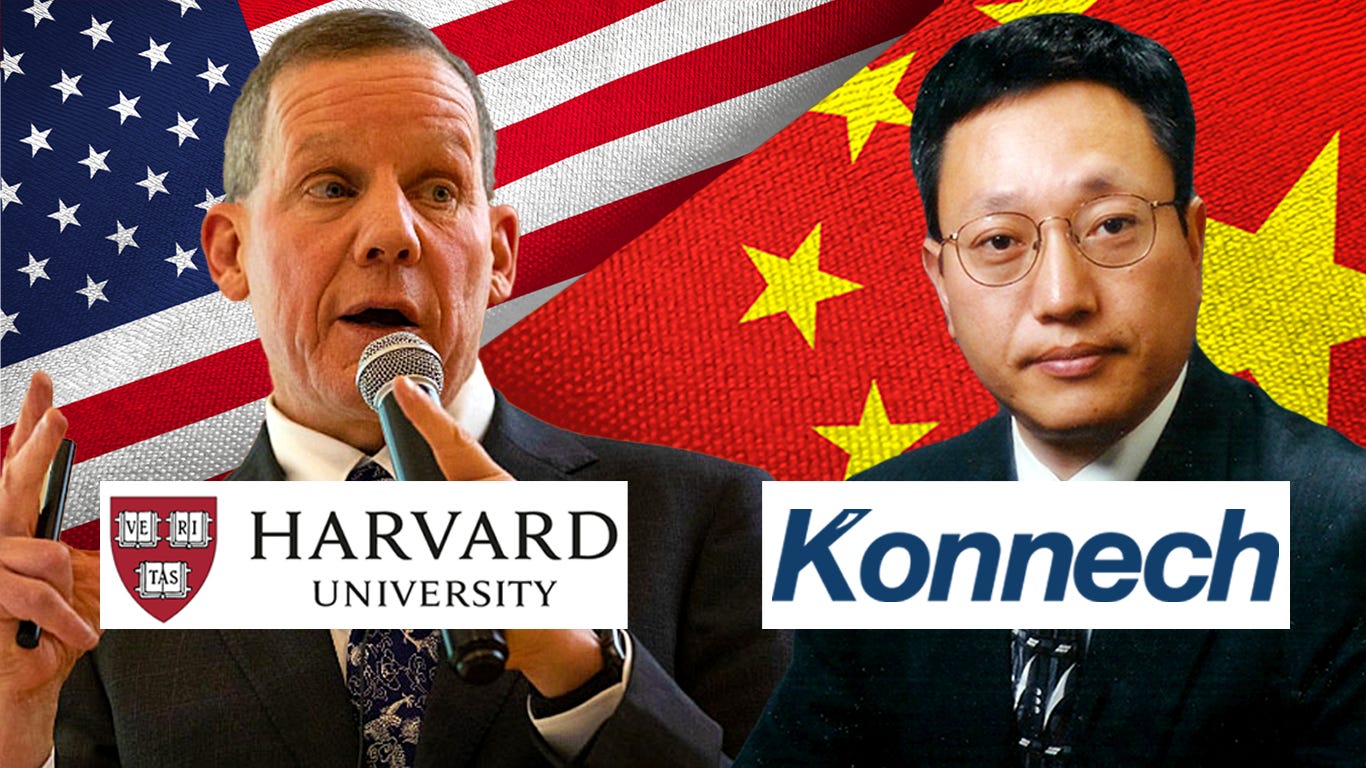
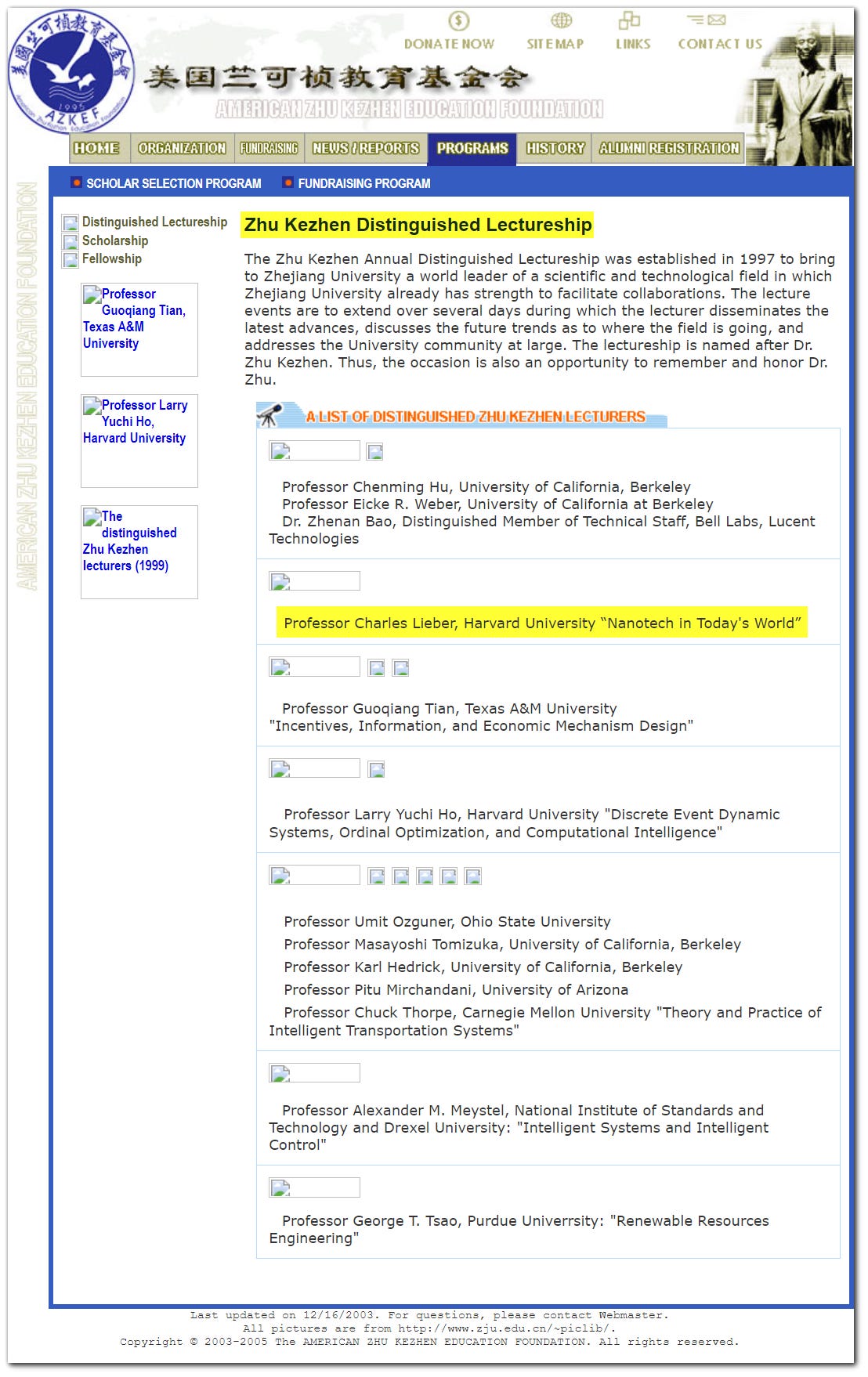
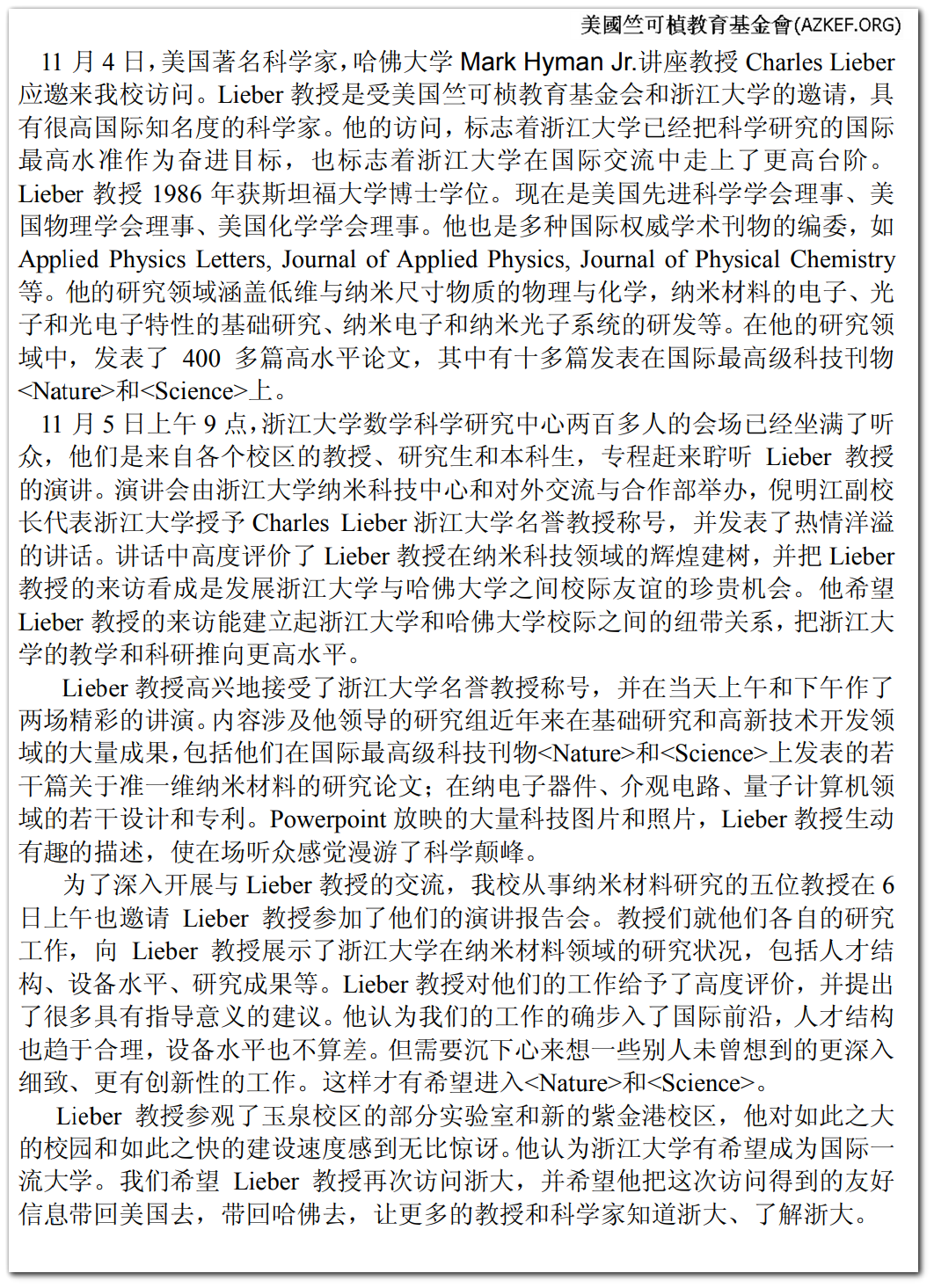

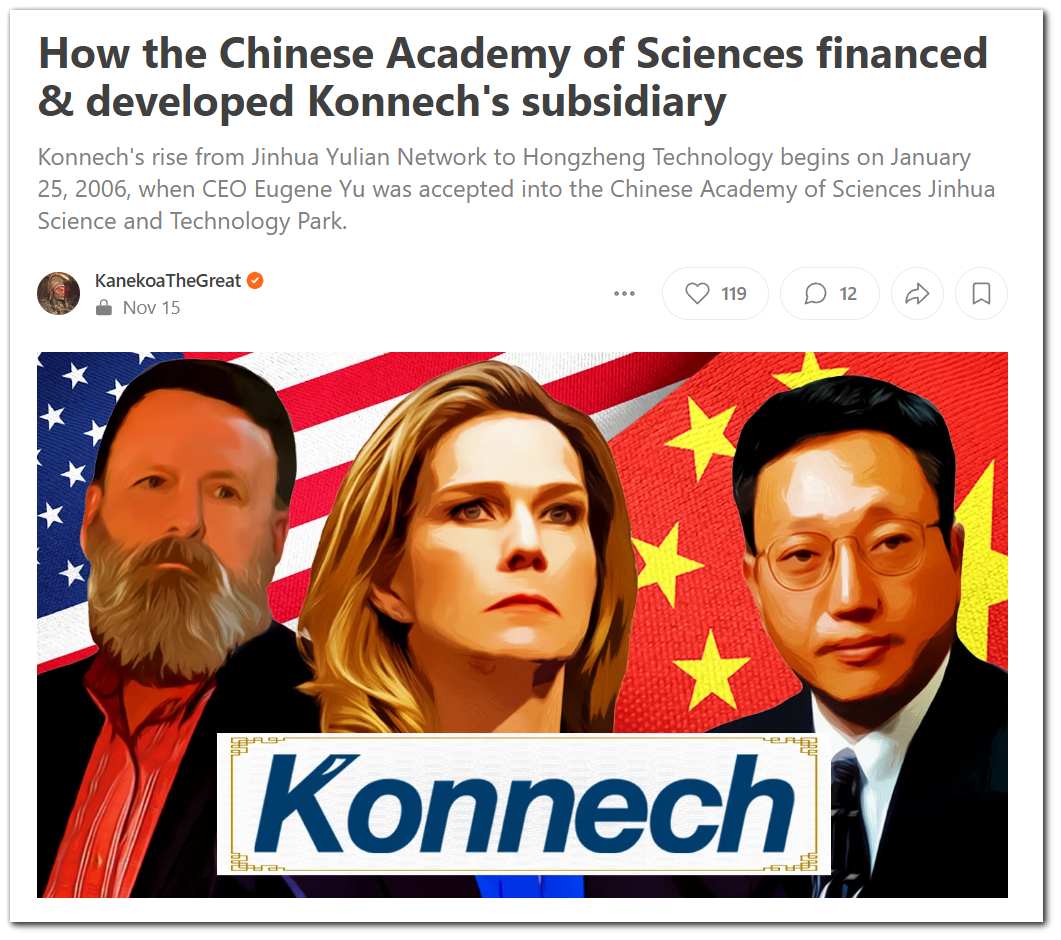
No comments:
Post a Comment
Comments always welcome!